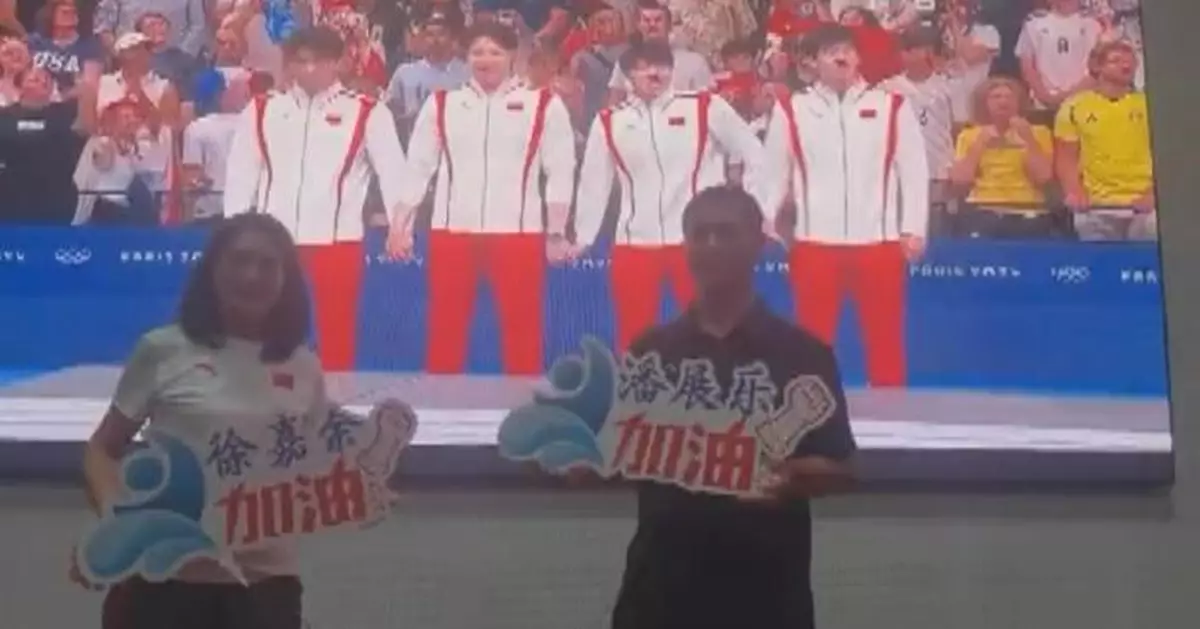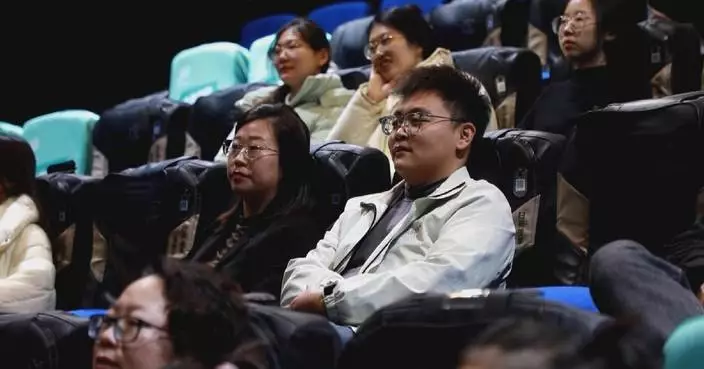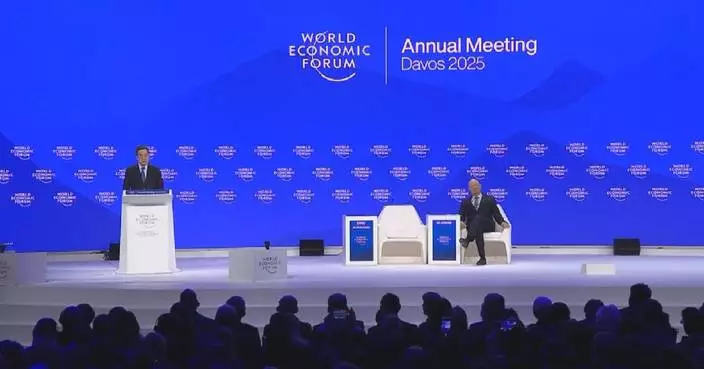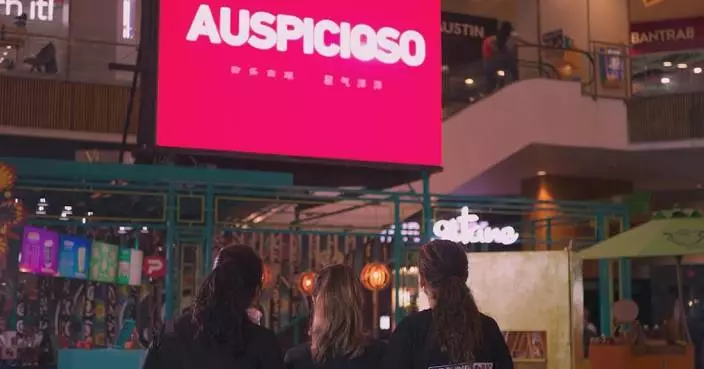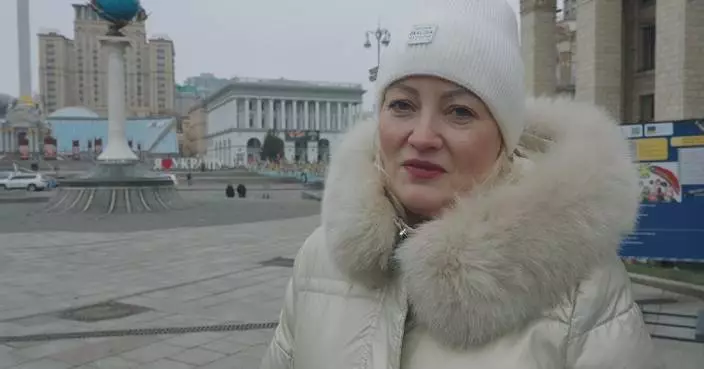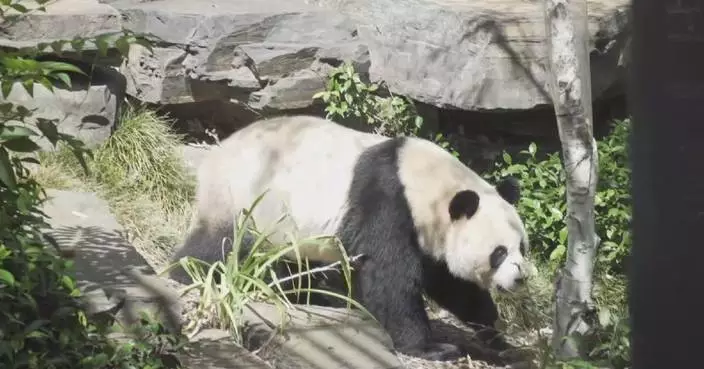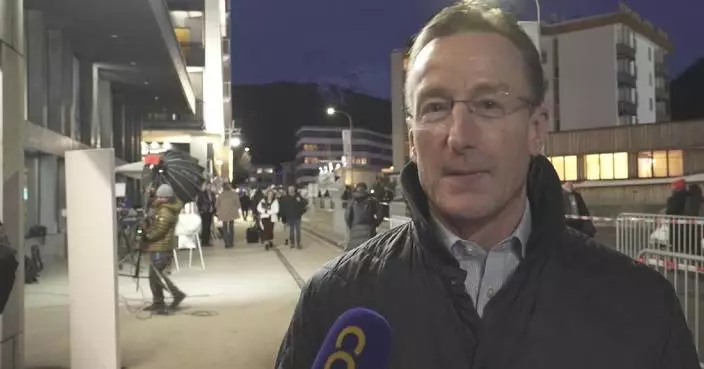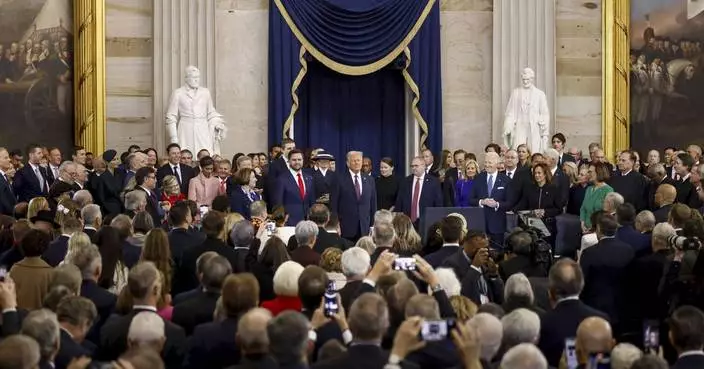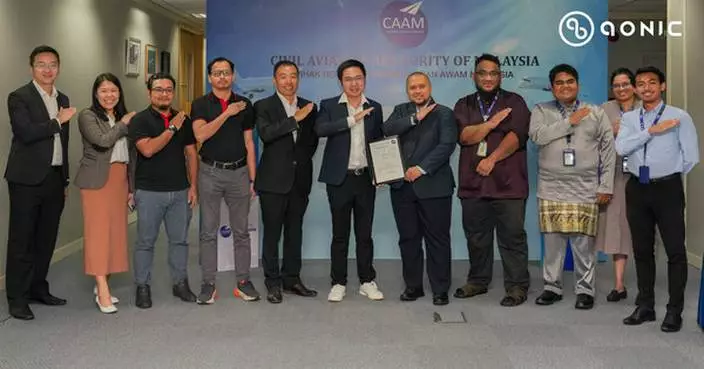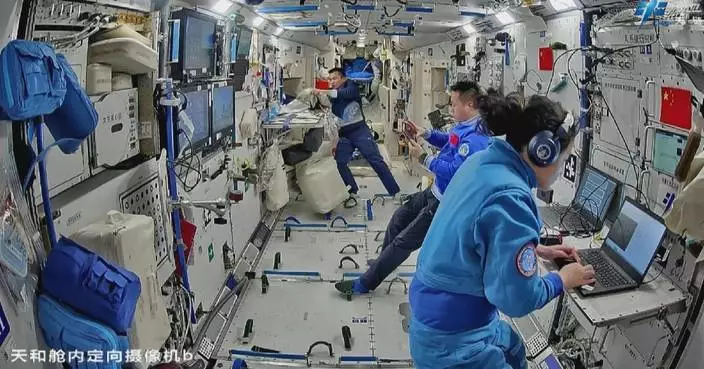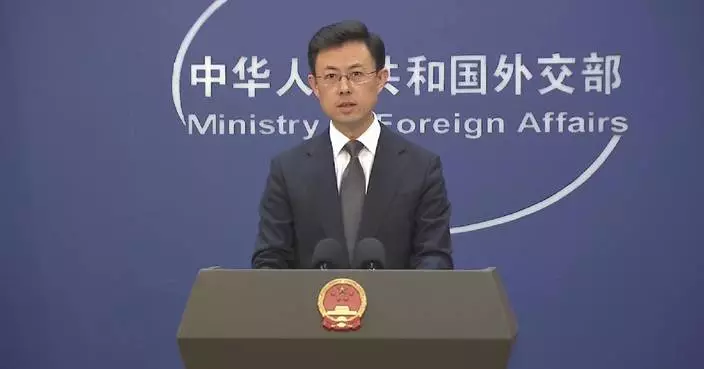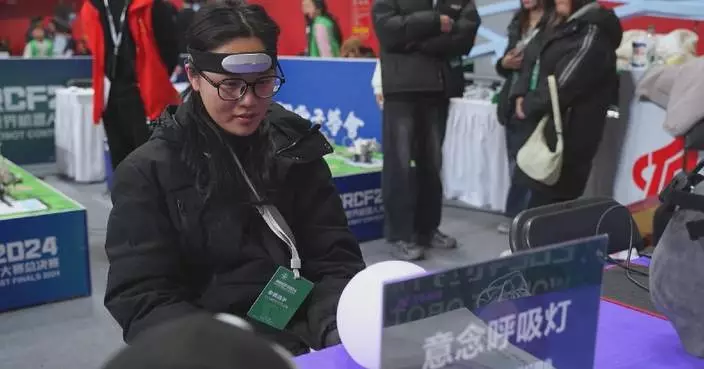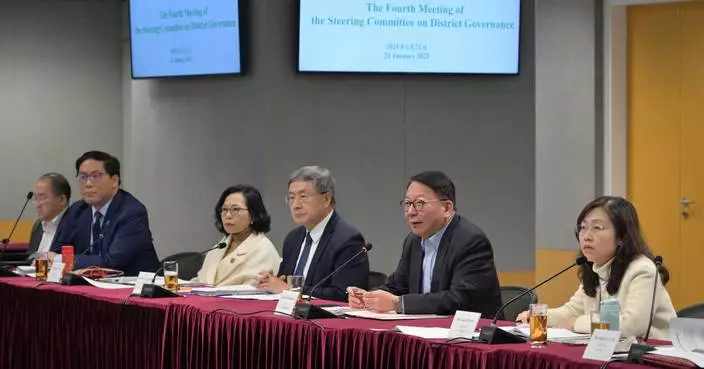Families and friends of the four Chinese swimmers burst into cheers as they watched the Chinese quartet winning the men's 4 x 100m medley relay of swimming at the Paris 2024 Olympic Games on Monday.
The Chinese quartet of Xu Jiayu, Qin Haiyang, Sun Jiajun and Pan Zhanle claimed the men's 4x100m medley relay gold in three minutes, 27.46 seconds, more than half a second ahead of the U.S. team of Ryan Murphy, Nic Fink, Caeleb Dressel and Hunter Armstrong.
The result broke the United States' run of 10 successive gold medals in this event dating back to the Los Angeles 1984 Olympic Games.
In Wenzhou City of east China's Zhejiang Province, the audience of the live stream, made up by the gold medalists' relatives, cheered for the athletes' excellent performance with the excitement reaching a high at the point when the team topped the competition ranking.
"He finally fulfilled his dream. My son has finally become a champion, an Olympic champion. Thank you, everyone," said Yu Zhenzhen, Xu Jiayu's mother.
"You are the best, the very best!" said Pan Jianxian, Pan Zhanle's father.
In the men's 4x100m medley relay final, Sun Jiajun substituted for his teammate who felt poorly, and took on the third leg.
In Yichang City of central China's Hubei Province, Sun's family also gathered in front of the television, watching punctually and witnessing this thrilling moment.
"After years of hard work, he finally stood on the highest podium. I'm very excited," said Sun Haibing, Sun Jiajun's father.
In his post-match interview, Sun burst into tears before saying a word, a moment that his mother especially empathized with.
"He cried because of the pressure, and I can understand that. I understand him. He was excited, and he didn't know what to say. That's how he feels," said Chen Zaorong, Sun's mother.
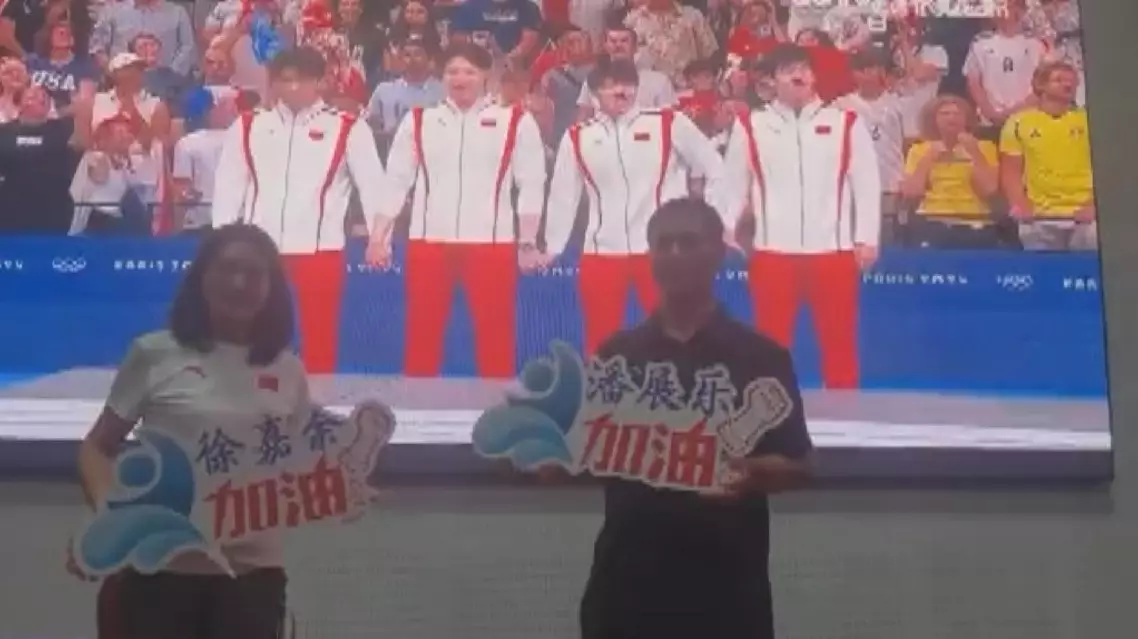
Families, friends cheer for Chinese Olympic gold medalists in swimming
Various activities were held worldwide to celebrate the upcoming Chinese New Year, or the Spring Festival, which falls on Jan 29 this year.
Recently, the Chinese Consulate General in Niigata of Japan, in collaboration with the Gansu Provincial Song and Dance Theater, delivered a spectacular visual feast for the overseas Chinese and Japanese audiences in Sendai.
The performance, featuring the elements of Dunhuang culture and the history and culture of the Tang Dynasty, attracted about 2,000 spectators. Many Japanese people praised the colorful Chinese culture and expressed their hope to go to China to see with their own eyes and understand Chinese culture and traditional Chinese festivals such as the Spring Festival.
"It's the first time I've seen such a performance. It's so gorgeous. I'm really touched. This Spring Festival event is also an opportunity for Japan and China to further develop friendly relations. If there is any chance for a performance like this in the future, I would like to come and watch it. I also really want to travel to China now," said a Japanese audience member.
"Happy to know that cultural heritage like the Spring Festival was included on the Representative List of Human Intangible Cultural Heritage, I think it's great to be able to celebrate such a festival in Japan. I really hope everyone can take a look and learn about the Spring Festival," said another audience member.
"We want to invite performers from Gansu Provincial Song and Dance Theater to present Dunhuang-themed music and dance which is full of Silk Road cultural elements. This will allow local people to see the mutual learning between Chinese and Japanese civilizations," said Cui Weilei, Consul-General of China in Niigata.
Budapest's Chinatown was alive with energy on Saturday as the streets were filled with music, dance, and the aroma of traditional Chinese delicacies during a two-day Spring Festival celebration.
The "Happy Chinese New Year" Temple Fair brought together numerous visitors and performers to usher in the upcoming Year of the Snake. They enjoyed the magnificent dragon and lion dances, ethnic performances, sugar-figure blowing, calligraphy demonstrations, and the unique experience of wearing traditional attire Hanfu.
"We come here because we have a deep appreciation for Chinese culture and Chinese traditions, and a special interest in Chinese music. I think the most important part of Chinese culture is Chinese food because the best way to bring people from all over the world together is to sit around a table and eat together," said a resident in Budapest.
Colorful celebrations and Spring Festival receptions were also held at many Chinese embassies and consulates around the world.
By showcasing Spring Festival customs and intangible cultural heritage, these events allowed local communities to experience the festive vibes of the Spring Festival up close.
In Dubai, over 1,000 performers and artists from around the world came together to blend traditional Chinese culture with modern art through a rich variety of performances, drawing a large number of audience. The airing of the Spring Festival Gala promotional video by China Media Group also became a highlight of the evening.
A reception was held Wednesday evening in Cairo by the Chinese embassy in Egypt to celebrate the upcoming Spring Festival.
Around 600 attendees including Zhang Tao, charge d'affaires of the Chinese embassy, Ahmed Shaheen, Egyptian assistant foreign minister for Asia-Pacific, Australia, and New Zealand affairs, representatives of the Egyptian government and people from all walks of life were gathered.
"On the occasion of the coming of the Spring Festival, I would like to send my sincerest wishes to dear Chinese friends," said Shaheen in a speech.
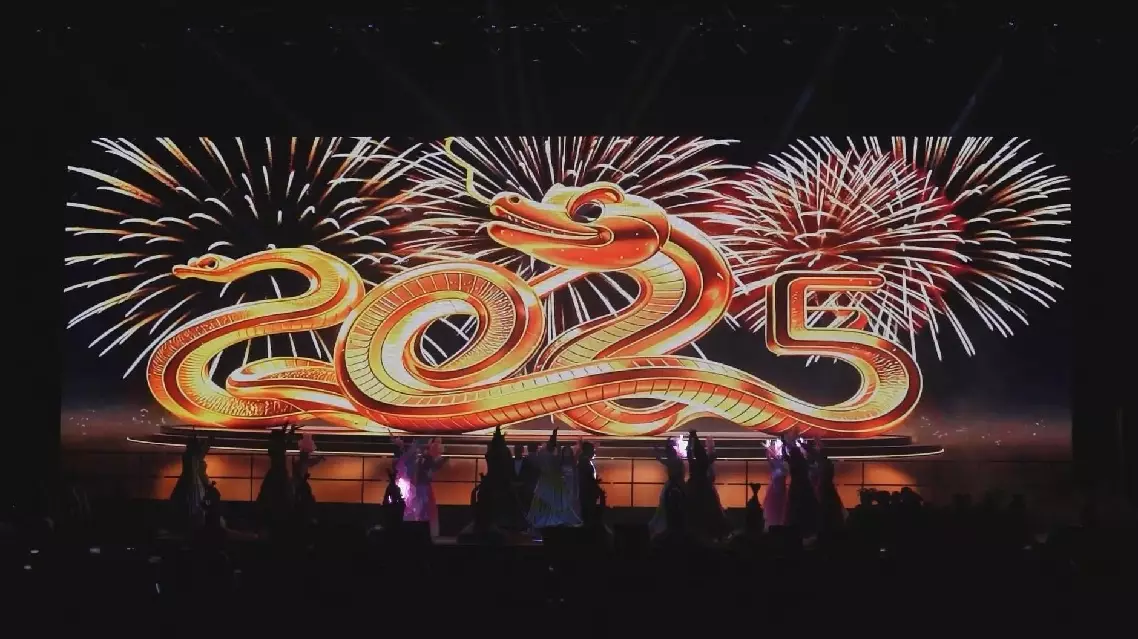
Celebrations ring in Chinese New Year worldwide



